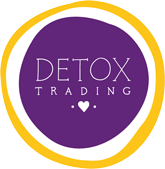Sunflowers are wonderful things. Among the biggest, brightest and most cheerful of flowers, few sights have more of a positive visual impact.
However, the aesthetic delights are just one great thing about them. Unlike daffodils, sunflowers aren’t there just to stand around looking pretty and yellow. The latter might have inspired more Wordsworth poetry while the former provided the subject for Van Gogh’s painting, but there is no doubt which is more useful.
Sunflower seeds are a highly important crop, most commonly found in the form of the sunflower oil that you can see on the supermarket shelves and that will sizzle away in frying pans every day.
However, that is just one of the many uses of sunflower seeds, many of which are rather less familiar to people. In particular, many people will not be so familiar with is sunflower lecithin.
Lecithin is a superfood that literally reaches every cell in your body, although its biggest positive impact is on brain function. The substance is both a phospholipid, which is a component in fatty acids, as well as being an antioxidant. This means it helps provide good fuel and food for your brain and other cells. It also, happily, adds flavour to your tastebuds.
Other benefits include better skin, improved digestion, lower cholesterol and, if you are breastfeeding, a reduced risk of complications.
It can be found in abundance in sunflower seeds, which is why these are often a great healthy snack to mix in with your other fruit and nuts, include in a recipe or even eat on their own.
Of course, rather than ingesting this from seeds, you can get it as sunflower lecithin powder, giving you a concentrated product to mix into your food and maximise its benefits. It can also work very effectively as an emulsifier, so it helps you get the right mix as well as eating more healthily. Indeed, lecithin is used as an emulsifier in all sorts of foods.
Lecithin can be found from many sources, but the list includes meat and eggs, so if you are a vegetarian or vegan you may want to focus on plant-based sources. Soy is another, often available in liquid capsule form. That might be a convenient thing to have with your hot morning drink, but clearly the sunflower version has greater advantages when it comes to producing enjoyable meals.
In addition, soy is sometimes genetically modified and is also allergenic, meaning it could be very unsuitable for some people.
Now may be a very good time to get some sunflower lecithin, however, as the supply of all sunflower products could soon be set to tumble. Sunflowers are the national flower of Ukraine, which owes to the fact that it is one of the world’s biggest producers of sunflower products. Russia is another and between them they produce around three quarters of the world’s sunflower oil.
With Russian produce subject to sanctions and the spring planting season in Ukraine being disrupted by the war, supplies are already starting to run low, with supermarkets like Waitrose limiting shoppers to two bottles of oil to prevent hoarding as shortages loom.
Therefore, it makes sense to get your sunflower products now, as it remains to be seen how bad the global shortage will be.

